Providing effective reinforcement and security, rebar tie wire is a must-have item for construction work. Crafted from resilient steel, this wire must be strong enough to meet required tensile strength standards. Being knowledgeable about how tensile strength affects its performance is essential to guarantee that it meets the necessary guidelines.
Uncovering the Tenacity of Tensile Strength
When a material is used for construction, its tensile strength is a key factor in determining its worth. This is the peak force a material can endure before it fails; measured in either pounds-force per square inch (psi) or megapascals (MPa), the greater the value of tensile strength, the better set-up the material will be for resisting heavy loads and tensioned-stress without snapping. It is determined by taking a sample of the material and stretching it until it fractures.
Measuring the Force of Rebar Tie Wire
Rebar tie wire must meet a superior standard of strength, necessitating it be made of high-grade steel for optimal performance. The American Society for Testing and Materials (ASTM) has established specific criteria for this unique type of wire:
Grade A Rebar Tie Wire possesses unbelievable strength, boasting a tensile strength rating of no less than 50,000 psi (345 MPa).
Grade B Rebar Tie Wire is an essential component in construction, combining an impressive minimum tensile strength of 60,000 psi (414 MPa).
Grade C Rebar Tie Wire features a tensile strength of a minimum of seventy thousand psi (483 MPa).
To guarantee that the rebar tie wire meets the desired strength for reinforcing steel bars, stringent criteria have been established.
Exploring the Forces at Play in Tensile Strength
When assessing the level of strength connected with rebar tie wire, a number of components must be taken into consideration. Notable among them are:
A wide range in terms of diameter is possible when it comes to wires, and their strength is dependent upon this size — the greater the thickness of the wire, the stronger the durability is.
• What kind of steel is deployed? With varying tensile strengths, different varieties of this precious metal can be employed.
The amount of strands making up a wire directly impacts how much tension it can endure; with increased layers of metal entwines, the tougher the cable.
The resilience of higher-grade steel surpasses that of its inferior equivalent; while lower-quality steel fails to meet the same tensile strength thresholds.
A smooth and even finish of the wire will lead to an enhancement of its tensile strength.
The tensile strength of the wire may be impacted by the methodology and approach used during its formation.
The Advantages of Exceptional Sturdiness
The strength of rebar tie wire is of utmost importance to ensure it can endure the tension and heavy load it will support in a construction application. A wire with an enhanced tensile strength will prove to be more resilient and provide more stability for the rebar. This is not only advantageous for preventing breakage but can also be financially beneficial by decreasing the probability of having to do replacements or repairs.
The American Society for Testing and Materials has imposed a standard of tensile strength all rebar tie wire must adhere to. When assessing this prerequisite, several key qualities such as the diameter, type of steel, layers, quality, surface finish, and the manufacturing process must all be taken into consideration. High tensile strength is essential as it guarantees the wire can bear the hefty weight and force experienced during construction. Without potential tension being withstood properly, the product wouldn’t prove dependable.
How Firm Is The Power Of Rebar Tie Wire?
Steel cable, known as rebar tie wire, is essential in the building industry when binding rebar together. Rebar is a robust steel bar that forms part of reinforced concrete and masonry structures. Rebar tie wire provides a solid connection between the rebar, keeping the structure secure and in place. Truly effective rebar tie wire must possess strong tension-strength in order to ensure reliable bonding between the bars of metal.
Resistance to bending, stretching and other forces that could break the bond between the rebar is determined by the tensile strength of rebar tie wire. The sturdiness of the joint relies heavily on several components, such as material, size and diameter of the wire, and method of welding or assembly. Generally speaking, the higher the tensile strength of the connection, the stronger its ability to withstand deformations and be resistant to breakage.
When searching for a suitable type of rebar tie wire for a construction project, one should bear in mind the tensile strength of the wire. It is essential that the wire can support the minimum tensile strength required to break the bond between rebar and tie wires. This should generally be at least 17,000 psi.
In many construction projects, galvanized steel rebar tie wire serves as the go-to choice for binding steel and reinforced concrete. This strong yet malleable material is made from top-tier steel and finished with a zinc coating to resist rust. What gives it its acclaimed durability is its average tensile strength of 17,000 – 24,000 psi, ideal for providing a secure hold for building projects near and far.
Utilizing stainless steel can be a great alternative when selecting a rebar tie wire; its advantages include being more resistant to corrosion and providing impressive tensile strength of 25,000 to 40,000 psi. This makes stainless steel a reputable choice for projects that demand a resilient bond, such as bridges enduring the elements. Additionally, users must consider the greater cost of stainless steel when compared to galvanized steel. Nevertheless, its extended durability makes up for the increased expense.
When it comes to tie wire, one may find an array of materials that are potentially viable. Aluminum and copper stand out for their noteworthy tensile strength. Though a bit costlier than steel, these materials remain quite effective despite their lesser level of corrosion resistance.
When narrowing down a fitting rebar tie wire for a construction project, the tensile power of the wire should be top of mind. The force of the wire must be sufficient to withstand a minimum of 17,000 psi to ensure that it can properly and securely join two pieces of rebar together. There are different strengths and styles on offer, ranging from galvanized steel and stainless steel, right through to aluminum and copper. Choosing the correct tie wire with the preferable tensile strength will result in a dependable bond between rebar materials.
Related Product
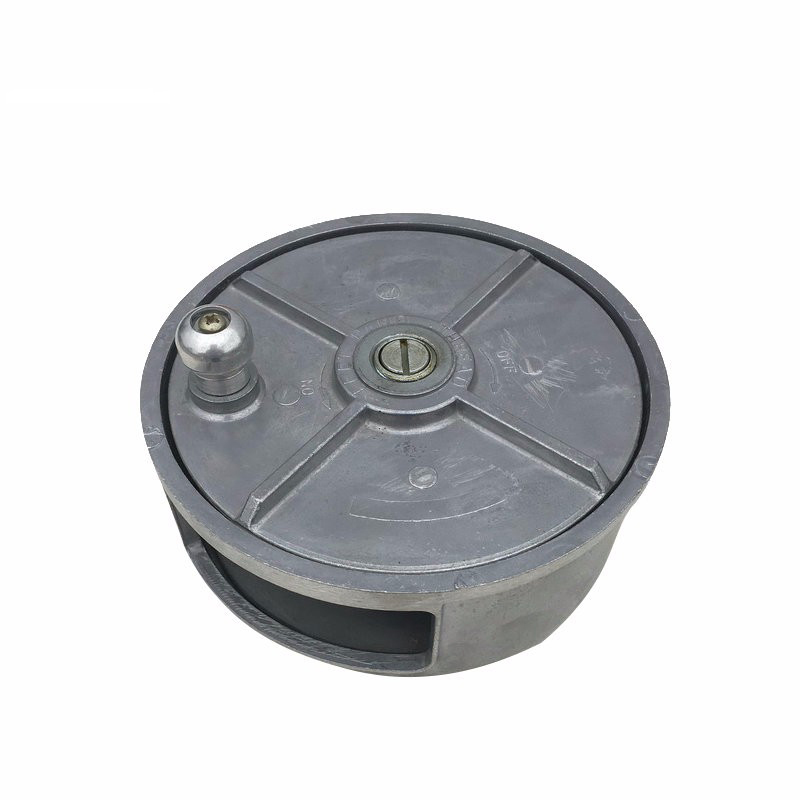
Reel Wire Tool
Product information: Specification of Aluminum Tie Wire Reel Material Plastic & Aluminum Weight 1.95LBS Application Binding Wire MOQ 1000pcs Sample Free Package 5PCS/CARTON &nb […]
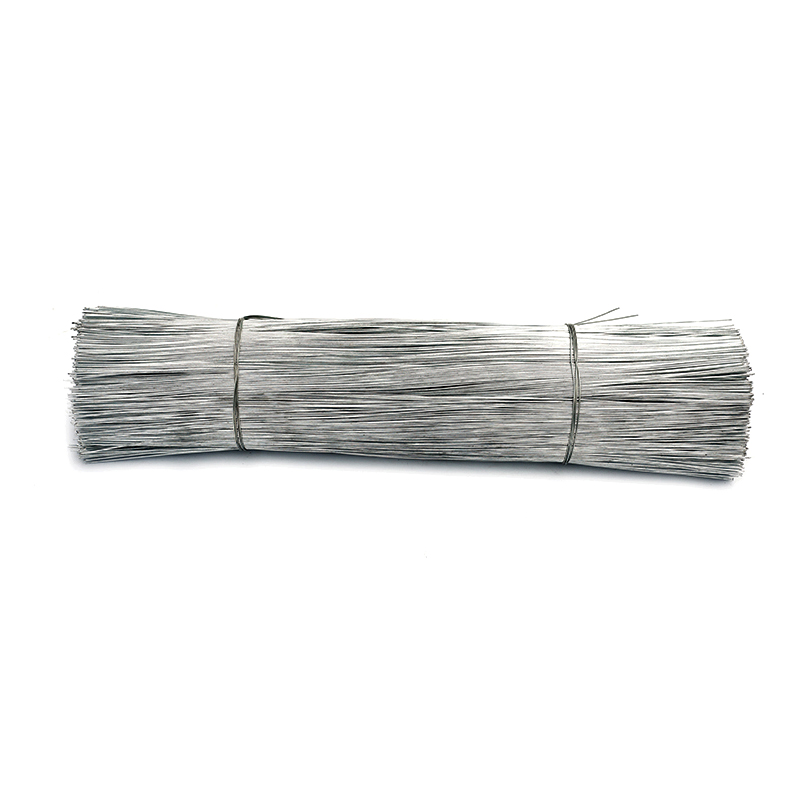
Cutting Wire
Product Description: Product Name Cutting Wire Zinc Coating 30-70g Place of Origin Chinese mainland Tensile Strength 33-50kg/mm2 Material Electro galvanizedHot dipped galvan […]

Twister Tool
Handle Twister tool,plastic handle: Weight: 0.4kg Color: Black, blue,yellow ,red etc Material: Carbon Steel Plastic Handle Wire Tie / Tying Hook Tool Twister Wooden Handle […]

Black Annealed Wire
Product Description: Product name Black Annealed Wire MOQ: No Material Q195,Q235 Delivery time: 20days after payment Surface annealed or as your request Payment terms: T/T,L/C We […]
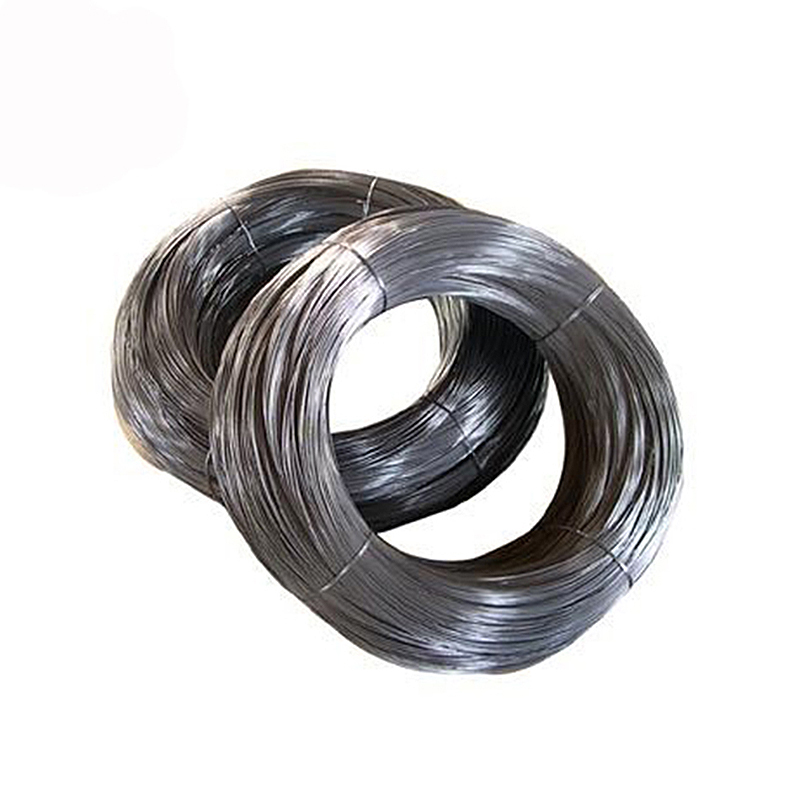
Galvanized Wire
Product information: Product Name Galvanized Wire Package 5kgs/roll, pp film inside and hassian cloth outside or pp woven bag outside 25kgs/roll, pp film inside and hassian […]
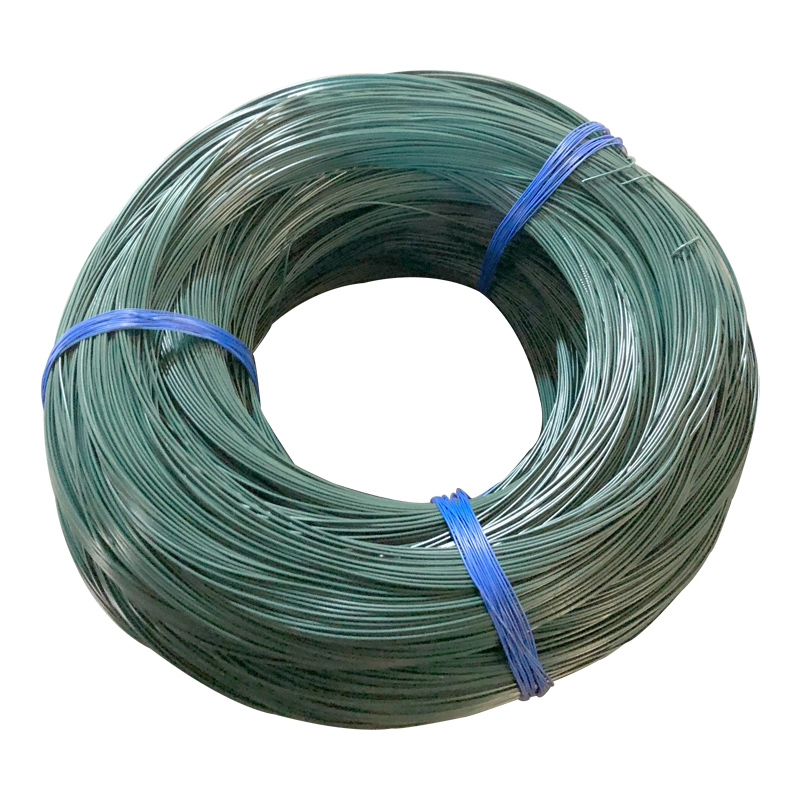
PVC Coated Wire
PVC coated wire, also called plastic coated wire, after high temperature dissolution cooled solid PVC particles uniformly wrapped in high-quality black iron wire and galvanized wi […]
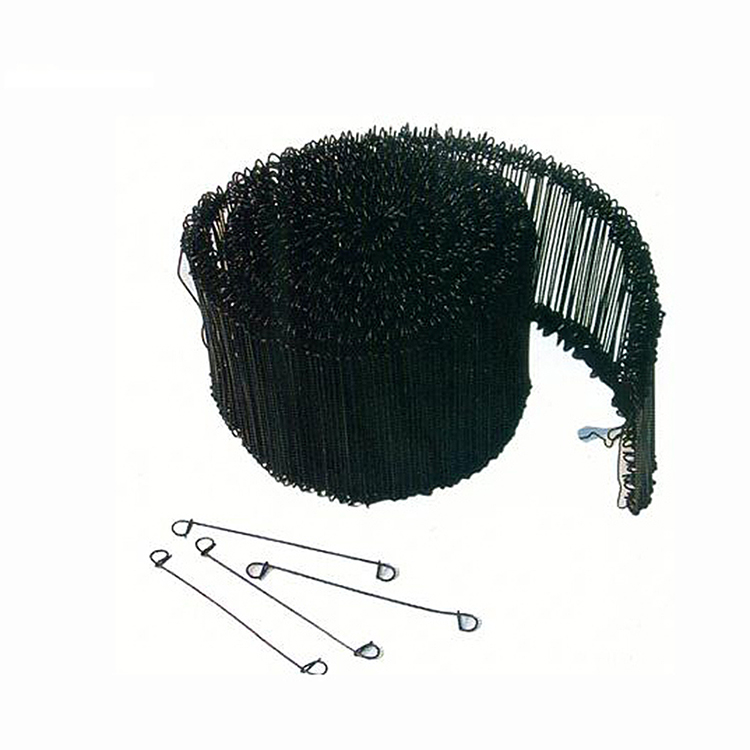
Double Loop Tie Wire
Double loop tie wire material Product Information: Wire diam. 0.5mm—2.0mm Finishes Black Annealed. Galvanized Annealed, Coppered, PVC coated, Stainless steel Wire gauge BWG6 […]
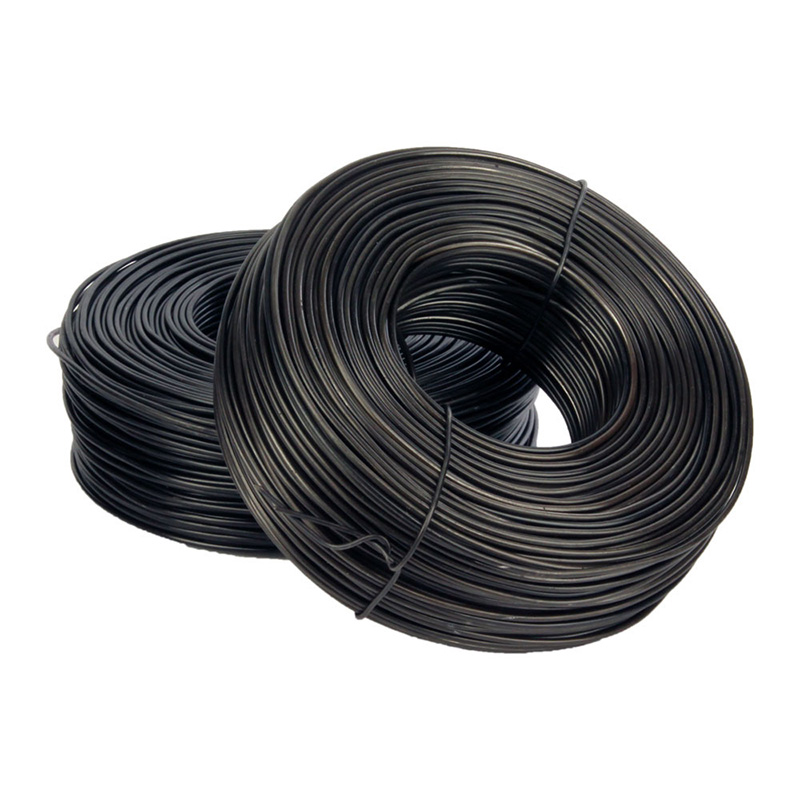
Tie Wire
Production Process of rebar tie wire : Steel rod coil — Wire Drawing — Wire Annealing–Rust Removing–Acid Washing– Boiling– Drying– Zinc Feeding– Wire Coiling. Wires Type 1.Galvaniz […]
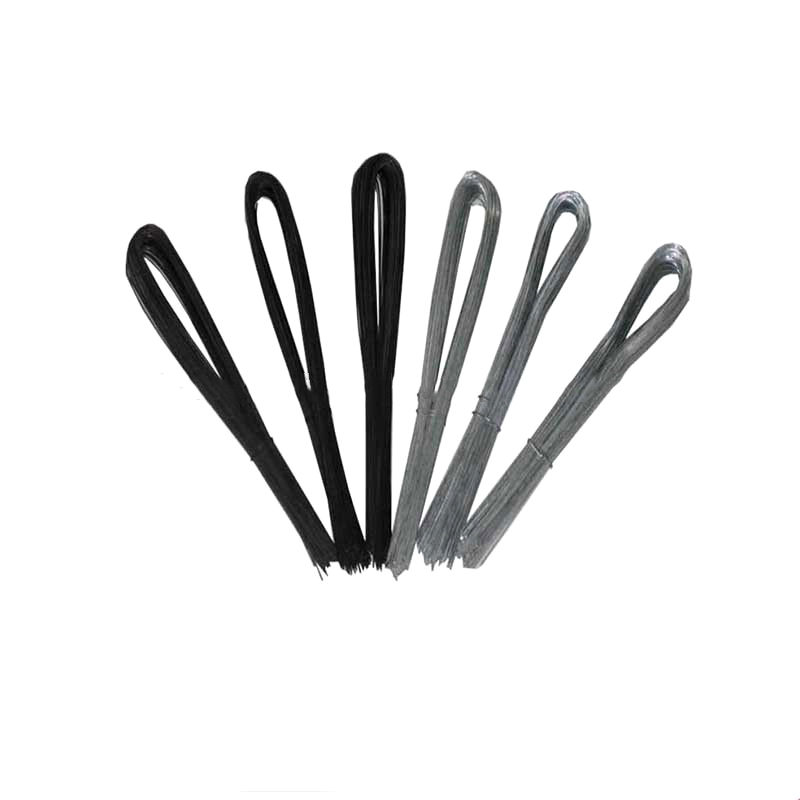
U Type Wire
Product information: Product Name Scaffolding Packing Galvanized Tie Wire Cuttings U Type Binding Wire Material Electro galvanized,hot dipped galvanized,black annealed,PVC coated W […]
Post time: 2023-07-04
